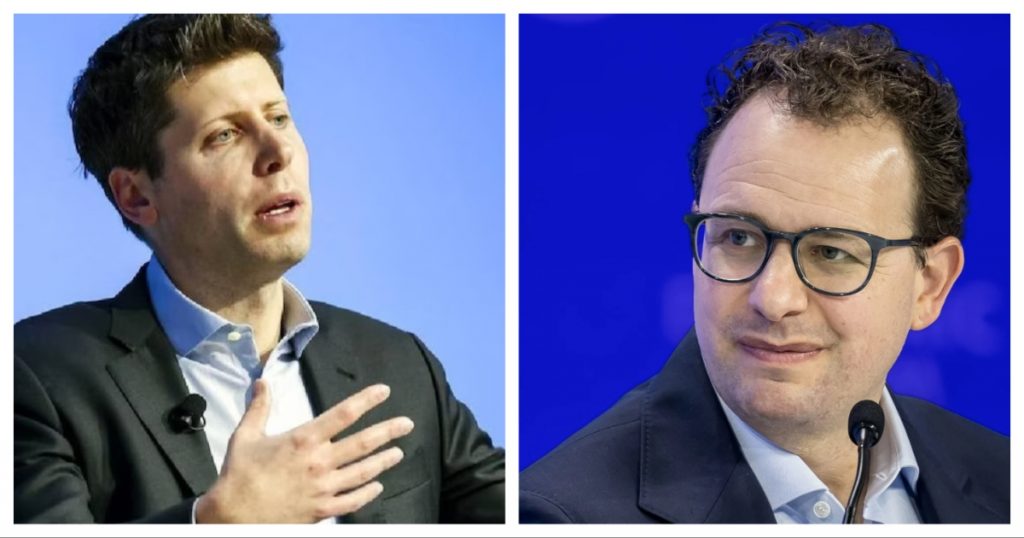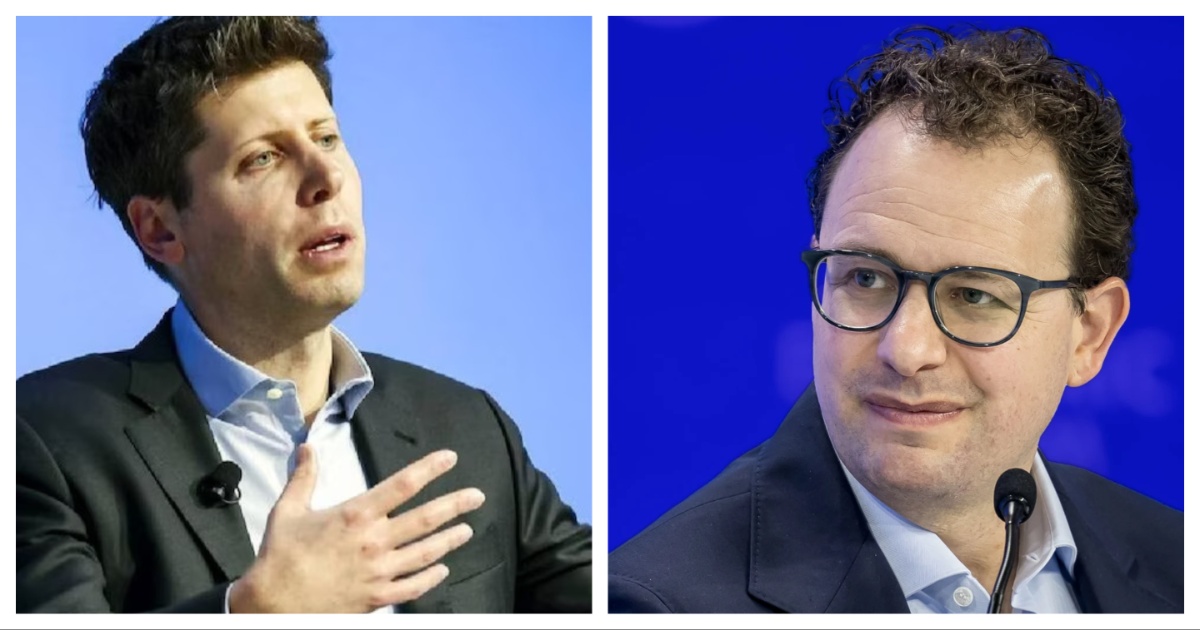Anthropic CEO Dario Amodei has said that half of all entry-level white-collar jobs could be gone thanks to AI in five years, but other AI leaders don’t agree.
OpenAI’s leadership doesn’t seem to believe that AI will cause the loss of many jobs. In an recent interaction, OpenAI CEO Sam Altman and COO Brad Lightcap pushed back against Amodei’s dramatic forecast, arguing that there is currently no evidence to support such a rapid and widespread displacement of jobs. Lightcap, who oversees OpenAI’s business operations and strategic partnerships, offered a detailed rebuttal, grounding his perspective in the company’s extensive work with a vast array of businesses deploying AI.

During a live recording of the “Hard Fork” podcast, when asked if they agreed with Amodei’s prediction, both Sam Altman immediately replied “No.” Lightcap then elaborated on their position, questioning the basis for such a claim. “We have no evidence of this,” he stated. “Dario’s a scientist, and I would hope he takes an evidence-based approach to these types of things, but we work with every business under the sun. We look at the problem and opportunity of deploying AI into every company on earth. We have yet to see any evidence that people are kind of wholesale replacing entry-level jobs.”
Lightcap acknowledged that significant changes in the job market are inevitable with any major technological shift. He drew historical parallels to illustrate this point, noting, “I think that there is going to be some sort of change in the job market. I think it’s inevitable. I think every time you get a platform shift, you get a change in the job market. I mean, in 1900, 40% of people worked in agriculture. It’s 2% today.” He even pointed to a more recent, and perhaps surprising, agent of job displacement: “Microsoft Excel has probably been the greatest job displacer of the 20th century. And if we knew a priori that Microsoft Excel was coming, and everyone was kind of fretting about it, I think in retrospect we would’ve thought that was dumb.”
While acknowledging that “there will be change, of course,” Lightcap emphasized the lack of current data to support the more alarming predictions. “There’s no evidence of it today,” he reiterated. He also expressed a sense of optimism about society’s ability to adapt to these changes. “I think we will manage through it. We have a lot of empathy for the problem.” Lightcap highlighted OpenAI’s commitment to ensuring a smooth transition, stating, “We see it as our mission to make sure that people know how to use these tools and to drive people forward.” He noted the fluency with which younger generations are adopting these new technologies, suggesting they will be at the forefront of this evolution.
Sam Altman has become the lastest AI leader to disagree with Dario Amodei’s prediction on job losses. When asked in an interview to comment on Amodei’s prediction, NVIDIA CEO Jensen Huang had said that he disagreed with Amodei on “almost everything”. “One, he believes that AI is so scary that only they should do it,” Huang said. “Two, [he believes] that AI is so expensive, nobody else should do it … And three, AI is so incredibly powerful that everyone will lose their jobs, which explains why they should be the only company building it,” Huang added.
The differing views of Amodei and the OpenAI leadership highlight a central and pressing debate in the age of generative AI: the pace and scale of its impact on the workforce. Amodei isn’t the only person who’d predicting job losses. Amazon has already said that it expects its workforce to shrink in coming years because of AI, and British Telecom has made a similar prediction. Companies like Klarna, Salesforce and Inmobi too have said that AI has begun impacting how their hire people.
In contrast, Lightcap’s and Altman’s perspective, while not dismissive of change, suggests a more gradual evolution where AI tools augment rather than simply replace human capabilities. This viewpoint is bolstered by observations of how some businesses are currently integrating AI – often to enhance productivity and free up employees for more complex, creative, and strategic tasks. As companies continue to explore and implement AI, the real-world impact on job roles will become clearer. For now, the leaders at the forefront of this technological revolution offer distinct visions of the future of work, leaving businesses and employees to navigate the path forward.
